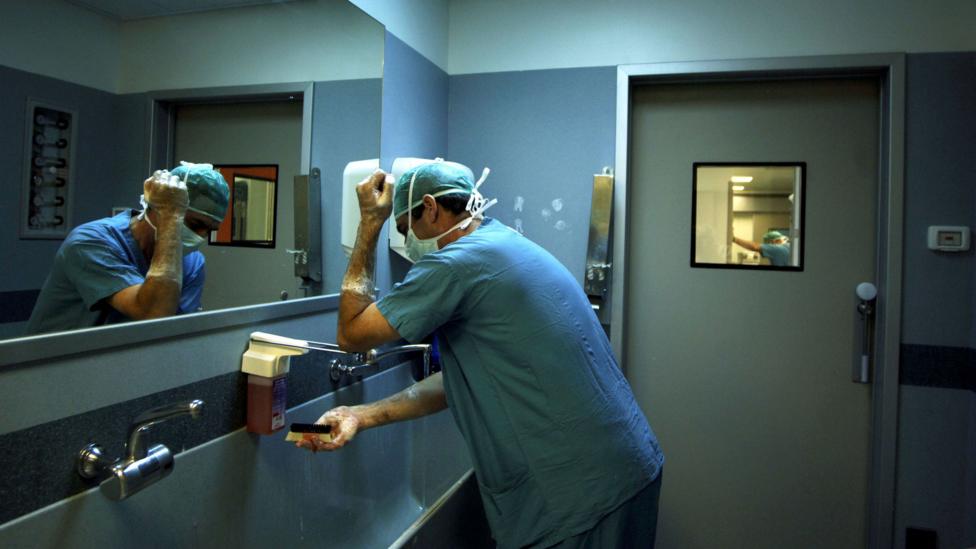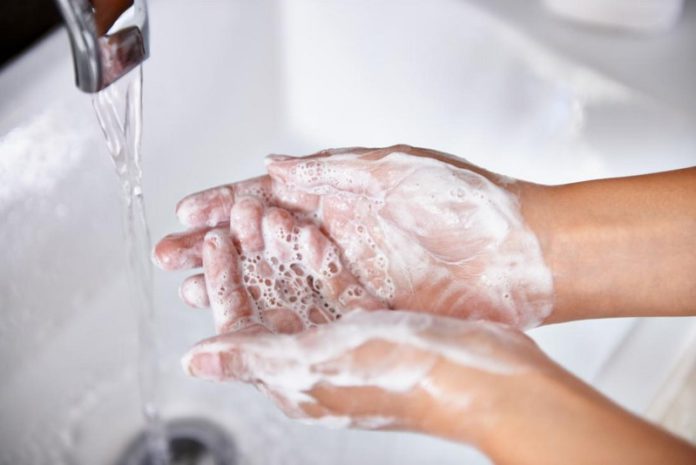There are millions of non-hand-washers hiding among us. Why won’t they adopt this simple hygiene habit – and how can we change their minds?
“My 2019 resolution is to say things on air that I say off air…” – the famous last words of Pete Hegseth last year, just before he revealed a secret that set the internet alight.
At the time, Hegseth was best known as a Fox News presenter who had a sprinkling of controversial views. Then he said: “I don’t think I’ve washed my hands for 10 years.” Cue a collective wrinkling of noses, and a frenzy of articles about what might be on your hands after a decade.
Disconcertingly, Hegseth is in good company; in 2015 the actress Jennifer Lawrence dropped the bombshell that she almost never washes her hands after going to the bathroom. (They both later said they had been joking). That same year, the Republican Senator for North Carolina suggested that requiring restaurant employees to wash their hands was a classic example of over-regulation.
While 10 years is hopefully some kind of record, observant bathroom-users everywhere will already have noticed that non-hand-washers are alarmingly widespread. One study estimated that in 2015, just 26.2% of global bathroom visits with potential “faecal contact” were followed by hand washing with soap.
“It sounds like such a simple behaviour,” says Robert Aunger, an expert in evolutionary public health at the London School of Hygiene and Tropical Medicine. “But, you know, we’ve been working on it [getting people to wash their hands more] for 25 years and it’s still very low.”
Of course, this can partly be explained by the lack of adequate facilities and soap in poorer parts of the world. In the least developed countries, only 27% of the population has access to these things (The World Health Organization and UNICEF estimate that around three billion people don’t have either at home). But even in many high-income nations, where both are abundant, only 50% of people actually use them after going to the toilet – surely enough for us to consider making ankle greetings permanent.
These statistics are particularly jarring, when you consider that washing your hands is thought to be one of the most life-saving inventions in the history of humankind – contributing to an average lifespan which now hovers around 80 years in countries like the UK, rather than 40 or so as was the case in 1850, when hand washing was first popularised.
As if we needed any further incentives, this simple hygiene habit also provides the attractive possibility of eluding superbugs and pandemics. A 2006 review found that regularly washing your hands can cut your risk of respiratory infections by between 6 and 44%. Since the Covid-19 pandemic emerged, scientists have found that a country’s handwashing culture is a “very good” predictor of the degree of its spread.
(The virus is mostly thought to infect people through particles suspended in the air, but it can also enter the body after a person touches contaminated objects and then their face. (Read more about why we can’t stop touching our faces.))
Why are some of us such enthusiastic hand-cleaners that we will pay £360 for hand sanitiser during a shortage, while others stubbornly refuse to simply pick up the soap? And if mysterious new viruses and horror stories about faeces on hotel TV remotes can’t coax people into changing their habits, what will?

It turns out that failing to stop by the sink on your way out of the bathroom might not just be down to laziness. From a person’s style of thinking to their degree of delusional optimism, the need to feel “normal” and the potency of their feelings of disgust, a number of psychological factors are subliminally discouraging people from washing their hands. By understanding these hidden biases, experts around the world are hoping they can lure us into becoming more hygienic.
“One problem with handwashing is that, especially in developed countries, you can avoid washing your hands lots and lots of times and you won’t get ill,” says Aunger. When it does make you ill, it’s often days later, by which point that time you forgot will have long vanished from your memory. “Even with coronavirus, they’re saying the delay between being infected and seeing any symptoms is like five, six days, so the connection is very difficult to make.”
Beware of optimism
One factor that’s thought to have an impact is optimism. The “optimism bias” involves believing that bad things are less likely to happen to ourselves than they are to other people. This irrationally positive outlook is universal – found in diverse human cultures and across demographics such as gender and age, and even in some animals, such as starlings and rats. It leads us to miscalculate our chances of a range of unpleasant events, from developing cancer to getting divorced.
If we see others washing their hands in the bathroom, that’s what we do – but crucially, when nobody’s doing it, there’s a pressure not to either
This delusion may be partly responsible for things like smoking, or why many people choose credit cards that end up costing them money. It may also stop some people from washing their hands. One study, which was conducted at a large university in New York amid the 2009 swine flu (H1N1) pandemic, found that students who had higher levels of unrealistic optimism were less likely to intend to wash their hands. Meanwhile, those who had a greater confidence in their ability to control their own lives were the opposite.
The optimism bias has also been found in student nurses, who tend to overestimate their knowledge of good hand-hygiene practices, and people who handle food for their jobs, who consistently underestimate their risk of causing food poisoning in others.
Social norms matter
A big clue to the importance of psychology in hand washing lies in the extraordinary range of hand hygiene practices in different cultures around the world. For one French study, 64,002 people across 63 countries were asked if they agreed with the statement “washing your hands with soap after using a toilet is something you do automatically”. Less than half the respondents from China, Japan, South Korea and the Netherlands agreed. Meanwhile, the country with hands-down (sorry) the best rates was Saudi Arabia, where 97% of people said they habitually washed their hands with soap.
Even within countries, we’re not all equally guilty of crimes against hygiene.
For example, studies have consistently shown that women are considerably more diligent at handwashing than men; in one of his own studies, Aunger found that women were twice as likely to wash their hands at motorway service station toilets in the UK. The trend has even extended into the Covid-19 pandemic, with one recent poll finding that 65% of women and 52% of men say they are washing their hands regularly.


